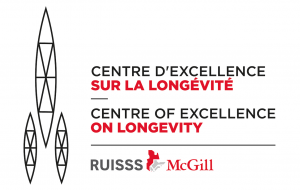Art on the brain
Background
Engaging in productive and enjoyable leisure activities is associated with many health benefits in seniors (e.g., enhanced well-being, improved physical health, decreased risk of dementia, and reduced use of healthcare resources). Despite the well-documented importance and benefits of leisure activities, there are several known barriers which can make participation difficult (i.e., mobility problems, travel distance, poor mood). Thus, mobile health (mhealth) technology represents a viable alternative to potentially mitigate these obstacles by bringing the activity to the user.
Recently, the Baycrest team created a novel mhealth solution, called ArtontheBrain;
a web-based application (app) aimed at promoting cognitive health for older adults across the continuum of “normal” cognitive aging through early dementia. The rationale for creating ArtontheBrain is largely attributed to the positive health benefits reported through participatory arts-based interventions. In fact, studies show that when their mood is better, people tend to socialize more, get out of the house more, need to see the doctor less, and even pay better attention and solve problems more easily.
The ArtontheBrain app is modeled after face-to-face participatory interventions, incorporating three basic activities; learning (history of the art work), playing (telling stories, word games) and mingling (interacting with other users). The app can be played individually (with assistance from a partner, if needed), or in facilitator-led groups. Moreover, ArtontheBrain fosters intergenerational interaction as well as interaction with care partners and health professionals to concomitantly reduce stigma and promote socialization around a neutral topic which is unrelated to age or health status.
Objectives
- To establish and validate the positive health impacts of ArtontheBrain
- To evaluate how well the app can support different user play styles
- To evaluate if it can affect positive health outcomes in the same way as face-to-face arts interventions do
Methods
The experimental designs in this multi-centre clinical validation include: a) a simple pre-test post-test (Design 1); b) a randomized pre-test post-test pitting Intervention against active Control (Design 2); and c) a randomized pre-test post-test pitting Intervention against active Control against waitlist Control (Design 3).
Prospects
Mhealth solutions have the potential to benefit significantly to society, thanks to its potential to assist at low cost
To provide healthcare professionals with a tool they could “prescribe” to their patients to promote their health and wellness
To decrease the number of physician visits and to delay long-term care needs, which would in turn free up healthcare resources to be targeted toward those with the greatest need and generally impact the availability of healthcare resources
Partners
Baycrest University, Toronto
MAB-Mackay at the CIUSSS West-Central Montreal



